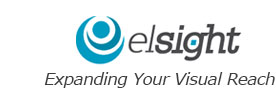More than a few Israeli companies are choosing to trade overseas, on the stock exchanges of Australia, London and Canada, and to waive an IPO on the Tel Aviv Stock Exchange. These are not only large companies that it seems required for them to IPO on Wall Street, but also small and medium-sized companies. "Not sure we would have done as well in Tel Aviv as in the foreign stock exchange"
Shiri Haviv Waldhorn 20/06/2018 19:30
"It has become a trend so high that there is not a day that I do not get a call from managers of an Israeli company asking to receive recommendations for listing on a the stock exchange in Australia," says Nir Gabay, CEO and co-founder of the technology company ElSight. Gabay talks about the increasing interest of Israeli companies in listing on the Australian Stock Exchange (ASX), which currently has 17 Israeli companies listed and a number of other Israeli companies already on the way. Elsight undergone an IPO in Australia a year ago, and after a steep rise in the share price undergone a secondary public offering a few months ago.
But ElSight and Australia are not a single case, but a representative example of a phenomenon that has been felt in the local market for years. Quite a few Israeli companies are choosing to trade on overseas exchanges, and give up trading close to home on the Tel Aviv Stock Exchange. These are not necessarily large companies (in Israeli terms) that Wall Street seems required for them, but also small and medium sized companies that prefer the stock exchanges in Australia, London, Canada or other countries in Europe and Asia.
Why is it happening? "We will start by saying that we have nothing against the Israeli stock exchange," says Gabay. ElSight, which is managed by Gabay, developed a system for the transmission of real-time secure information, which is capable of sending and receiving encrypted data from anywhere in the world, and began its path in the defense market, with restrictions on defense exports. When the restrictions were removed a year and a half ago, the company decided to leverage the situation to expand overseas, and sought investors.
Gabay says that the rumors reached two different factors: Australian brokers or underwriters, and a Canadian fund that wanted to invest in Elsight, with the intent of leading it to a Canadian issuance later. "An auction began, and the Australians won," he laughs. "The IPO in Australia was an excellent tool for raising the immediate amount, knowing we could raise money again down the road, and in view of this, our second quick round of financing was much higher."
Potential investors from Canada and Australia came to you. Was there also a request from the Tel Aviv Stock Exchange?
"The Tel Aviv Stock Exchange did not talk to me, but funds and investors spoke with me, and Israeli investors understand what we are doing, and it will be good for us to trade on the Israeli stock exchange as well."
So what prevents you?
"I do not rule out the possibility of dual listing in Israel or Canada, and later on in Nasdaq. We were a very small company until a year and a half ago. We learn what it is to be a stock exchange company while walking. Every day we learn new things, and I want to get much more prepared for the local stock exchange, because we Israelis are less forgiving. It is not at all certain that I would have succeeded in the Tel Aviv Stock Exchange, as in Australia. "
...
In retrospect, would you repeat the process?
Gabay: "The answer is yes, because it gave us the oxygen needed to leverage the company, especially when it comes to marketing and sales, what I learnt on the move is that the stock exchange is not forgiving - the investors are punishing you on the spot. If there is anything I would have done differently is all the communication with Investors".
You said there is not a day when you are not consulted with you about an IPO in Australia. What do you say to those companies?
"Some people say, 'We'll run fast to the Australian stock exchange, raise money, and nothing matters.'" The process itself costs quite a bit of money, I have to say that the costs around the IPO could reach 300,000-400,000 Australian dollars - and finally we reached almost one million Australian dollars.
"If we had to recommend someone who was in our situation, I would certainly recommend it, but I would recommend not being a typical Israeli, and giving Win-Win to investors.If you start the journey with a company value too high, you do not give enough prospect for investors to see the up rise. I know from my underwriters that there were other companies that tried to raise a lot more money in the IPO- and were not successful, and if you perform well, you can raise in the future at a higher value, from experience. "
